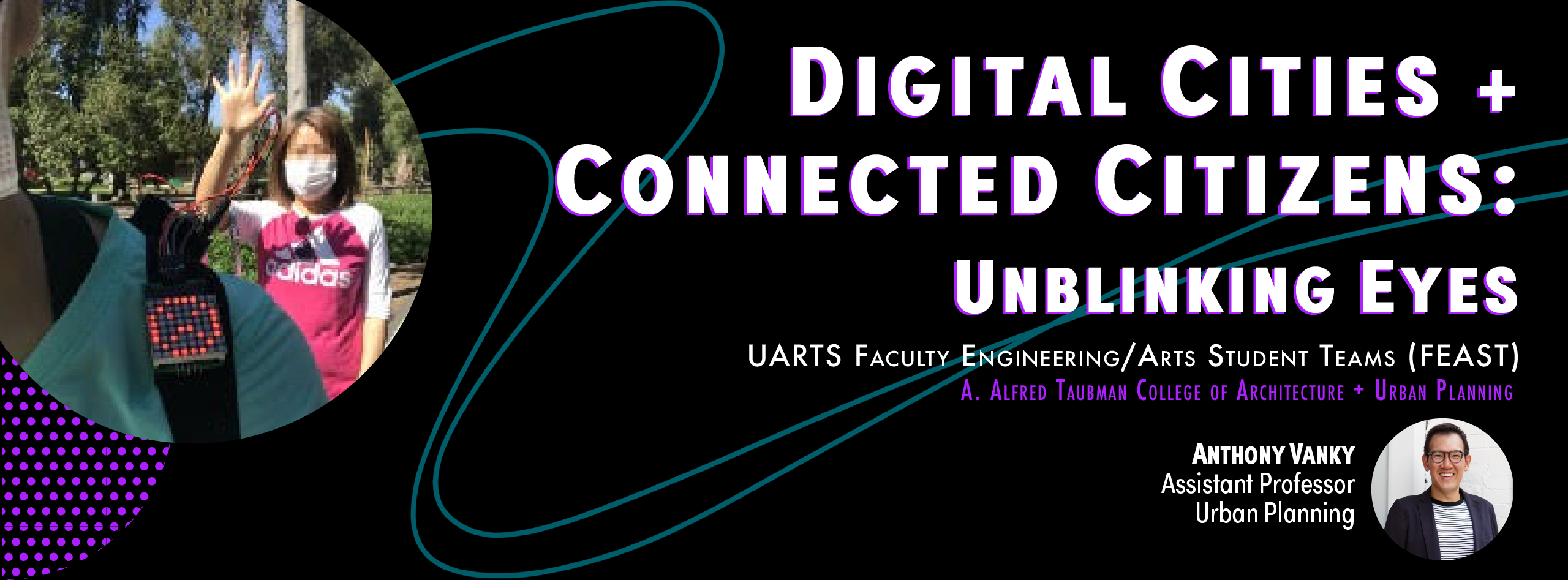
*This project is inactive starting Fall 2022*
Cities were once known as spaces of glass, steel, and concrete. Increasingly, mobile devices, embedded sensors, and artificial intelligence are changing the way people interact with these physical places and the nature of urban citizenship. Their applications in design and policymaking, security, operational management, sustainability, and documenting public spaces are increasingly common. These digital technologies and their resultant models and data outcomes can shape our perspective of the built environment and how residents engage with each other as citizens.
The use of these technologies has come with much criticism, including from the industry itself, for the lack of transparency around the use of these technologies—including their questionable accuracy—and the ethical concerns around their use.
In this project, we investigate the increasingly pervasive use of cameras and computer vision in our cities. From Project Greenlight in Detroit to the Link networks in London and New York, this project seeks to make transparent the hidden ways these technologies mediate how we live through the creation of publicly engaged, place-based, digital-physical interventions. Through these creative/technical works, we will make apparent the way the inherent biases and privacy dilemmas may unequally impact residents.
Faculty Project Lead
 Anthony Vanky, Ph.D., is an Assistant Professor in Urban Planning at the University of Michigan Taubman College, focusing on the use of data-centric practices in city-making and urban planning. He has previously held academic appointments at Columbia University and the Massachusetts Institute of Technology (MIT). At MIT, Vanky was a founding team member and the first academic programs manager of MIT designX, an academic accelerator dedicated to advancing innovation and entrepreneurship in design, cities, and the built environment. He was also a research lead at the MIT Senseable City Lab, a multidisciplinary research group. At the Lab, Vanky also served as the Lab’s partner and outreach strategist, where he connected companies’ and governments’ interests in smart cities to the research of the Lab and MIT.
Anthony Vanky, Ph.D., is an Assistant Professor in Urban Planning at the University of Michigan Taubman College, focusing on the use of data-centric practices in city-making and urban planning. He has previously held academic appointments at Columbia University and the Massachusetts Institute of Technology (MIT). At MIT, Vanky was a founding team member and the first academic programs manager of MIT designX, an academic accelerator dedicated to advancing innovation and entrepreneurship in design, cities, and the built environment. He was also a research lead at the MIT Senseable City Lab, a multidisciplinary research group. At the Lab, Vanky also served as the Lab’s partner and outreach strategist, where he connected companies’ and governments’ interests in smart cities to the research of the Lab and MIT.
Vanky’s own research considers the use of digital data and pervasive sensing technologies to design, plan, evaluate urban environments, and spans the disciplines of urban design, urban technologies, innovation studies, and public health. Alongside his academic work, he is co-founder of Social Studies, multidisciplinary strategic consulting and research and analytics firm that offers innovative perspectives on 21st century cities to government, businesses, and non-profit organizations. Anthony has widely presented topics of design, technology, and urbanism, including at Harvard University, the British Government, and several dozen private and public organizations. Anthony holds prior degrees from MIT and Tulane University.
